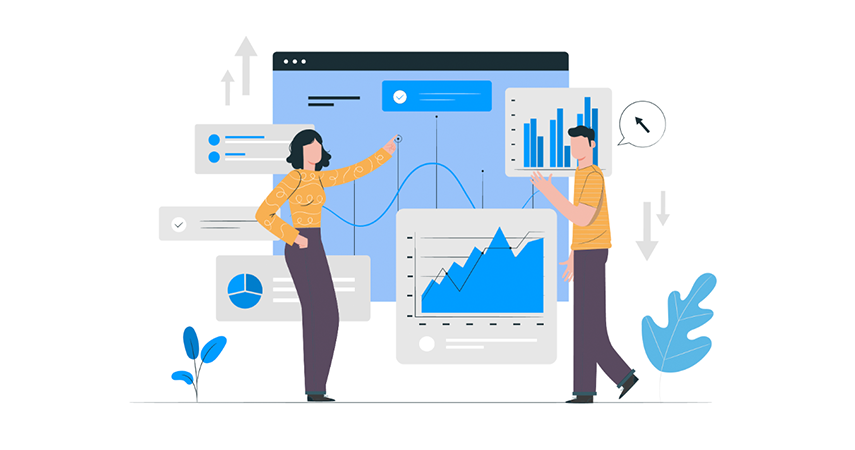Gyana: The future of data science is codeless

Andy German, Gyana’s Chief Strategy Officer, discusses a future in which data science is codeless, allowing businesses to capitalise on all that data has to offer without losing focus of what they do best
The rising volume of data in the world seems to be a given. For a while now, I’m pretty sure I’ve been reading that the world has produced more data in the last two years than the rest of the time put together. But you get the picture: there’s a lot of data out there, and no sign of it slowing down.
The tech community responded with a number of buzz-phrases that have zipped from jargon to common practice to overuse in a remarkably short period of time. Big Data described the overload of computing infrastructure in the face of the data onslaught. Artificial Intelligence became commonly misunderstood as the go-to solution for everyone’s problems. And Machine Learning was the latest way to breathe life into AI, especially given the availability of computers powerful enough to enable it.
Okay, this much we know already – against this backdrop of ever-growing data (of increasing variety), capable delivery infrastructure, all driving – and driven by – investor interest, you’d be forgiven for thinking that natural forces in the workforce would be gearing up to meet the challenge, right?
Well, in part that’s happening. Data science courses do seem to be more widely available and increasingly popular. But the demand for graduates and PhDs is outstripping supply – nobody is forecasting that the gap is doing anything but widening. For example, the University of California Riverside predicts a 60% shortfall in data science work positions by 2020 in the US alone, representing some three-hundred thousand roles.
The overused “data is the new oil” catchphrase is looking increasingly like an oil slick.
Andy German, Cheif Strategy Officer at Gyana
So we’ve got rising volumes of data, falling numbers of suitably qualified graduates, IoT around the corner which will provide a further impulse function to the volume of data, no sign of convergence in formats, and a working population of people with ever-increasing expectations of how data and AI will improve their lives. The overused “data is the new oil” catchphrase is looking increasingly like an oil slick.
It’s unsurprising then that this complex landscape has given rise to a multitude of market opportunities, all seeking to help workers interpret these datasets in order to provide the all-important insights needed for competitive advantage. There’s now a plethora of solutions on the market for all kinds of data needs, including some very powerful applications that almost need a PhD to know how to run them.
Hence the emergence of no-code, or codeless applications, which are able to understand questions posed in natural language – think Siri or Alexa – by the user rather than computer-friendly programming.
EVENT: Gyana’s Samsara 2019 – An immersive data science day
And that’s where the Gyana vision comes in: making AI available to everyone, enabling them to focus on their domain knowledge rather than learning how to programme computers or use complex interfaces. Being able to test hypotheses in real-time, sharing live analysis with colleagues, cutting out the use of numerous complex packages, and manipulating large datasets right there on their laptops.
The applications are everywhere you’d find data; anything from job recruitment to investment decisions, understanding energy markets to targeting precision medicine.
The reason being is that in this way, people can be allowed to be clever at what they do best. This not only makes them more efficient at what they do, reducing risks & costs, it enables them to reach their potential by lowering some of the blockers in their day-to-day roles. For example, using Gyana would allow a city transport planner to jump straight into analysing the impact of air quality on bus routes, without having to first spend a long time cleaning up and aligning the data.

Our vision is that people will not so much use Gyana but be a part of it. Once people start using it to improve their effectiveness at work – or at home for that matter – human nature is to socialise and share best practice, which further improves everyone’s productivity.
What headlines can we look forward to in three years’ time? That the world has produced more data in the last two years than the rest of the time put together? Probably. And that we’ll finally have the tools to make sense of the data, without having to be an expert? More than likely. But most of all, we look forward to reading about how everyone is using data science to do the stuff that they love.
Gyana provides its codeless Vayu platform for free, via their website.
